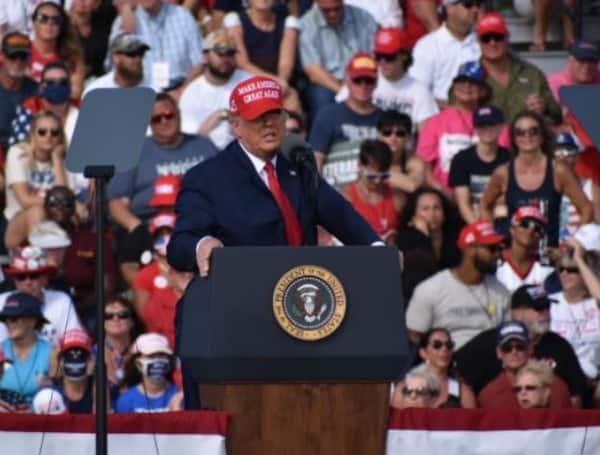by: Liam Edgar
Liberals have spent the last five years hating Donald Trump, and made no bones about it.
They hated the tweets. The hated self-aggrandizing exaggerations. They hated the militant pro-America attitude. And they likely hated the successes.
Yet many alleged conservatives held the president in contempt as well – and cashed in big accordingly.
The Lincoln Project, a grift created by a group of former GOP political consultants, has netted tens of millions of liberals’ dollars by posturing as an anti-Trump political action committee that weirdly pledged to purify the party by electing Democrats.
Moreover, supposed conservative pundits – such as George Will, David Frum, Max Boot, David French, and Bill Kristol – as well as Republican politicians – like John Kasich, Jeff Flake, Sen. Mitt Romney, and Govs. Charlie Baker and Larry Hogan, of Massachusetts and Maryland, respectively – have made sure they remain in the good graces of liberal editorialists by being sufficiently anti-Trump.
In fact, #NeverTrumpers seem to share the perspective of Stuart Stevens, a Republican political operative who first supported and then turned on Trump, and wrote a best-selling book about his “conversion.”
“Republicans always say that you can’t negotiate with terrorists; well, Donald Trump is a terrorist, and the Republican Party decided to negotiate with him,” he told Politico in an interview in August. “How has that worked out? He’s destroyed conservatism. He’s the most anti-conservative president of my lifetime.”
Oh, if only the rank and file of the Republican Party actually agreed with these malcontents.
Rasmussen Reports, a conservative-leaning pollster, posed a question on the GOP’s post-Trump future.
The outcome: “When the Republican Party reorganizes itself next year, GOP voters strongly believe President Trump should remain the role model, but most think the party should look for a new face to be its next presidential candidate.”
How strongly?
Said Rasmussen: “72% of likely Republican voters think their party should be more like Trump than like the average GOP member of Congress,” while just 24 percent “see the average Republican in Congress as a better model.”
These Republicans, despite the best efforts of the #NeverTrumpers, showed that by showering Trump with nearly 75 million votes, the most ever compiled by a sitting U.S. president.
And if you think the fact the Democrat Joe Biden got the most votes of any U.S. presidential candidate ever – 81 million – is because of his popularity, think again.
Trump drove both sides of the equation.
“Looking back at the presidential election,” Rasmussen noted, “Trump voters overwhelmingly say they voted for the president, while a sizable number of Biden supporters admit they were voting against Trump rather than for the former vice president.”
In November, Rasmussen noted that 90 percent of Trump backers went to the polls to specifically support him, while 29 percent of Biden voters cast ballots specifically against Trump, rather than for the Democrat.
More recently, when Rasmussen asked all voters about the Republican Party’s future, 40 percent responded that the GOP “should be more like Trump,” which reflected the bedrock foundation of his base throughout his presidency – as Trump’s job approval rating has hovered between 37 percent and 45 percent for almost his entire time in office.
On the other hand, 45 percent said the GOP “should be more like the average Republican member of Congress.”
That response likely shows the influence of non-Republicans – and some #NeverTrumpers.
Rasmussen reported that 62 percent of Democrats and 48 percent of independent voters think the Republican Party should be less like Trump and more like its typical member of Congress.
But if the #NeverTrumpers really believe what Stuart Stevens is selling – that Trump “destroyed conservatism” and is the “most anti-conservative president” in living memory – they should ask themselves a question: If Trump is so awful, and when the know-it-alls predicted the GOP would drown in a “blue wave,” how did Republicans in Congress cut Nancy Pelosi’s House majority to a mere four seats, the smallest margin in two decades, and Republicans pad their lead in state legislative seats?

